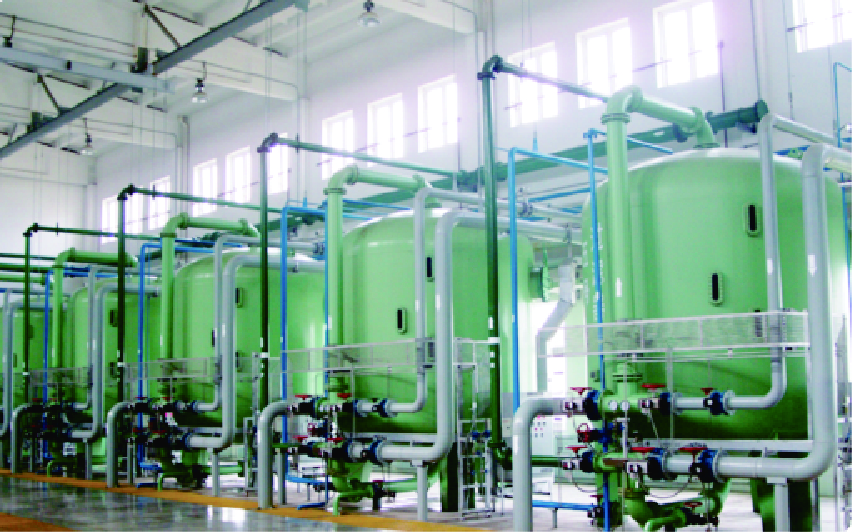
News
dec . 30, 2024 02:09 Back to list
Chitosan-Based Plant Biostimulant Production for Enhanced Agricultural Performance
Chitosan as a Plant Biostimulant Unlocking the Potential of a Natural Compound
In the quest for sustainable agriculture, biostimulants have emerged as a promising solution to enhance plant growth, resilience, and productivity. Among the various natural compounds being explored, chitosan—derived from chitin, a biopolymer found in the exoskeleton of crustaceans—has gained significant attention. As a plant biostimulant, chitosan not only promotes plant growth but also enhances resistance to pests and diseases, making it a potential game-changer in modern farming practices.
The Role of Chitosan in Plant Growth
Chitosan is a hydrophilic polymer that, when applied to plants, can stimulate growth and development through various mechanisms. One of its primary functions is acting as a natural elicitor, which triggers the plant's defense mechanisms. When plants sense chitosan, they respond by enhancing the production of phytohormones, which are crucial for growth regulation. This hormonal boost leads to improved root development, increased flowering, and ultimately higher yields.
Moreover, chitosan enhances nutrient uptake by improving soil structure and increasing microbial activity. It helps create a favorable environment for beneficial soil microbes, which in turn can solubilize nutrients and make them more accessible to plants. This synergy between chitosan and soil microorganisms not only increases the efficiency of nutrient absorption but also promotes soil health—a critical factor for sustainable agricultural practices.
Chitosan’s Role in Disease Resistance
Another compelling aspect of chitosan as a biostimulant is its potent ability to enhance plant resistance to diseases. When applied as a foliar spray or soil amendment, chitosan induces a state of systemic acquired resistance (SAR) in plants. This state fortifies the plant’s defenses against a wide array of pathogens, including bacteria, fungi, and viruses. The induced resistance is a non-specific response, meaning that once a plant has been exposed to chitosan, it will have heightened defenses against future infections, regardless of the specific pathogen.
chitosan plant biostimulant factory

This dual action—promoting growth while enhancing disease resistance—makes chitosan particularly appealing to farmers. By using chitosan, growers can potentially reduce their reliance on chemical pesticides, contributing to a more environmentally friendly agricultural practice. This shift is not only beneficial for the ecosystem but also aligns with consumer demand for food produced with fewer chemicals.
The Industrial Potential of Chitosan
Given its numerous advantages, the industrial potential of chitosan in agriculture is substantial. The chitosan biostimulant market is expected to grow significantly as more farmers recognize the benefits of sustainable practices. The formulation and application of chitosan can be adapted for various crops and farming systems, making it a versatile option for both large-scale and smallholder farmers.
Companies are increasingly investing in chitosan production facilities, recognizing the need for high-quality, bio-based products. These factories are designed to extract chitosan from renewable resources, ensuring that the production process itself remains sustainable. By producing chitosan on an industrial scale, these operations can meet the growing global demand for natural plant biostimulants, promoting eco-friendly agriculture.
Conclusion
Chitosan, as a plant biostimulant, embodies the intersection of natural resource utilization and innovative agricultural practices. Its multifaceted benefits—enhancing plant growth, increasing disease resistance, and improving soil health—make it an invaluable tool for modern farmers. With ongoing research and development, the potential applications of chitosan continue to expand, reinforcing its role in the sustainable agriculture revolution.
As we move towards an era where food security and environmental sustainability are paramount, chitosan stands out as a beacon of hope. The development of chitosan biostimulant factories will not only support agricultural productivity but also contribute to the health of ecosystems around the globe. Embracing this natural compound could lead to healthier crops, reduced chemical use, and ultimately, a more sustainable future for agriculture.
-
OEM Chelating Agent Preservative Supplier & Manufacturer High-Quality Customized Solutions
NewsJul.08,2025
-
OEM Potassium Chelating Agent Manufacturer - Custom Potassium Oxalate & Citrate Solutions
NewsJul.08,2025
-
OEM Pentasodium DTPA Chelating Agent Supplier & Manufacturer High Purity & Cost-Effective Solutions
NewsJul.08,2025
-
High-Efficiency Chelated Trace Elements Fertilizer Bulk Supplier & Manufacturer Quotes
NewsJul.07,2025
-
High Quality K Formation for a Chelating Agent – Reliable Manufacturer & Supplier
NewsJul.07,2025
-
Best Chelated Iron Supplement for Plants Reliable Chelated Iron Fertilizer Supplier & Price
NewsJul.06,2025
